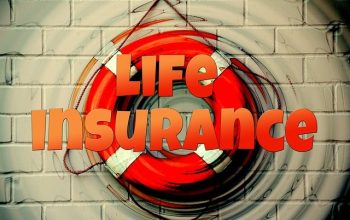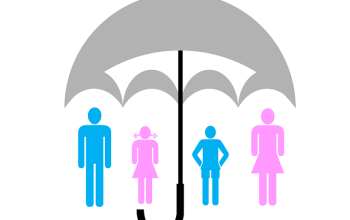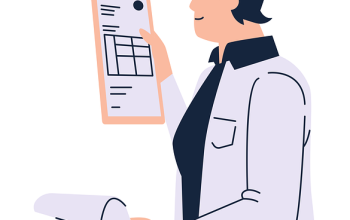Employer's Liability Insurance is a mandatory coverage for businesses with employees to protect against financial responsibility due to work-related injuries or illnesses. General Liability Insurance, distinct from Employer's Liability Insurance, covers third-party claims involving bodily injury, property damage, and reputational harm. Professional Liability Insurance, also known as Errors and Omissions Insurance, is essential for businesses providing professional advice or services to protect against financial losses due to allegations of negligence. Public Liability Insurance safeguards against incidents involving the public or third parties during business operations. Product Liability Insurance is crucial for companies whose products may cause injury or defects, offering coverage for associated legal costs and compensation claims. Small Business Insurance and Commercial Liability Insurance packages often include a combination of these liability coverages to provide comprehensive protection tailored to a company's specific operational risks and legal obligations, ensuring both employee safety and financial well-being. For startups and small businesses, these insurance types are not just legal requirements but strategic investments that support long-term viability and success by mitigating the risks of costly legal claims.
Employer’s Liability Insurance serves as a critical safety net for businesses with employees, mandating coverage against work-related injuries or illnesses. This pivotal insurance safeguards companies from the financial burden of employee compensation claims and legal expenses. It is a cornerstone in a robust risk management strategy, ensuring that even the smallest mishaps don’t lead to significant financial setbacks. Understanding its role, distinguishing it from General Liability Insurance, and recognizing the need for additional coverages like Professional and Public Liability Insurance, as well as Product Liability Insurance, is crucial for small businesses and startups in particular. This article delves into these essential aspects of liability insurance, guiding business owners through the process of selecting appropriate Business Liability Coverage options to protect their operations and financial health.
- Understanding Employer’s Liability Insurance and Its Distinction from General Liability Insurance
- Comprehensive Coverage: How Employer’s Liability Insurance Protects Your Business Financially Against Workplace Injuries and Illnesses
- Beyond Employer’s Liability: Exploring Other Key Liability Coverages for Comprehensive Risk Management, Including Professional, Product, and Public Liability Insurance
- The Importance of Employer’s Liability Insurance for Small Businesses and Startups
- Navigating Business Liability Coverage Options: Choosing the Right Commercial Liability Insurance for Your Company's Needs
Understanding Employer’s Liability Insurance and Its Distinction from General Liability Insurance
Employer’s Liability Insurance is a specialized form of business insurance that provides financial protection to employers against compensation claims from employees who sustain work-related injuries or illnesses. This coverage is mandatory for businesses with staff and is distinct from General Liability Insurance, which covers third-party claims such as property damage or bodily injury resulting from the company’s operations. While both types of insurance are critical components of a robust risk management strategy, Employer’s Liability Insurance is tailored specifically to address the unique exposures that arise from employer-employee relationships.
Distinguishing between Employer’s Liability Insurance and other liability coverages like Professional Liability Insurance, Business Liability Coverage, Public Liability Insurance, Small Business Insurance, and Product Liability Insurance is crucial for businesses to ensure they are adequately protected. For instance, Professional Liibility Insurance (also known as Errors and Omissions Insurance) safeguards against claims related to professional advice or services, while Public Liability Insurance covers incidents involving the public or third parties. Similarly, Product Liability Insurance specifically protects against claims arising from defective products. Understanding these distinctions is essential for businesses to tailor their commercial liability insurance policies to their specific operational risks and legal requirements, thereby safeguarding both their employees and the financial health of their operations.
Comprehensive Coverage: How Employer’s Liability Insurance Protects Your Business Financially Against Workplace Injuries and Illnesses
Employer’s Liability Insurance serves as a critical financial safeguard for businesses with employees by providing coverage against claims arising from work-related injuries or illnesses. This insurance is not merely a legal requirement but also a strategic asset in managing risks associated with the workplace. It ensures that employers can fulfill their responsibilities to provide compensation and cover legal expenses without jeopardizing their business’s financial health. In the event of an employee sustaining an injury or contracting an occupational illness, this insurance steps in to mitigate the associated costs, preventing what could otherwise be a crippling financial burden for the company.
Furthermore, robust Employer’s Liability Insurance encompasses various forms of Business Liability Coverage, including General Liability Insurance, Professional Liability Insurance, and Product Liability Insurance. It also extends to Public Liability Insurance, which is particularly relevant for businesses that interact with the public or operate on multiple premises. For small businesses, this insurance is paramount, as it can often be more vulnerable to the impact of liability claims. Commercial Liability Insurance further expands the scope of protection by covering a wide range of risks, from employee-related incidents to third-party claims. This comprehensive coverage is indispensable for safeguarding a business’s financial stability and maintaining operational continuity in the face of unforeseen events. It underscores the importance of not only having this insurance but also ensuring that the policy is adequate and tailored to the specific needs of the business, reflecting the diversity of operations and potential exposures within the company.
Beyond Employer’s Liability: Exploring Other Key Liability Coverages for Comprehensive Risk Management, Including Professional, Product, and Public Liability Insurance
For businesses with employees, Employer’s Liability Insurance is a non-negotiable safeguard against work-related injury or illness claims. It not only provides financial protection but also ensures compliance with legal requirements. However, robust risk management goes beyond this single coverage. Small businesses and corporations alike must consider a suite of liability insurance products to ensure comprehensive protection. General Liability Insurance acts as a safety net for third-party claims arising from bodily injury, property damage, or reputational harm, commonly referred to as ‘slip and fall’ incidents or advertising injuries.
Expanding this foundational protection, Professional Liability Insurance, also known as Errors and Omissions (E&O) insurance, is crucial for businesses providing professional advice or services. It covers the costs associated with claims of negligence, misrepresentation, or inadequate work. Similarly, Product Liability Insurance is indispensable for companies whose products could potentially cause harm or be subject to defects. This coverage addresses legal fees and compensation when a product causes injury or damage. Lastly, Public Liability Insurance safeguards against claims resulting from accidents or injuries that occur on public property or as a result of the business operations affecting third parties.
Incorporating these additional forms of Business Liability Coverage into an insurance portfolio ensures that a company is prepared for a wide array of potential liabilities. It’s important to assess the nature of your business activities and the associated risks to determine the appropriate level and types of Commercial Liability Insurance required. A tailored approach to liability insurance not only protects your financial health but also instills confidence in clients, suppliers, and stakeholders that your company is responsible and well-prepared for any contingency. This holistic approach to risk management underscores a commitment to the well-being of employees, customers, and the business itself.
The Importance of Employer’s Liability Insurance for Small Businesses and Startups
For small businesses and startups, the prudent acquisition of liability insurance is a cornerstone of financial resilience. General Liability Insurance serves as the foundational shield against claims arising from third-party bodily injury, property damage, and personal and advertising injury. This coverage is critical for businesses that interact with the public or handle products that could potentially cause harm, safeguarding against the unforeseen costs associated with litigation.
Furthermore, as these enterprises grow and evolve, they may also engage in professional services, necessitating Professional Liability Insurance. This type of coverage protects against claims alleging negligence or errors in the delivery of professional services, ensuring that a single legal dispute does not jeopardize the company’s future. In addition to these, Business Liability Coverage, which includes Public Liability Insurance and Product Liability Insurance, becomes essential for companies whose operations involve a significant degree of public interaction or product sales. Commercial Liability Insurance, encompassing both General and Product Liability Insurance, is particularly important for startups operating in high-risk sectors, providing a financial safety net that can absorb the impact of costly claims without compromising the business’s stability or its ability to continue operations. As such, investing in comprehensive liability insurance is not just a legal requirement but a strategic move that can protect the longevity and success of small businesses and startups.
Navigating Business Liability Coverage Options: Choosing the Right Commercial Liability Insurance for Your Company's Needs
When considering the plethora of business liability coverage options available to companies today, it is crucial for business owners to understand the distinctions between General Liability Insurance, Professional Liability Insurance, and other forms of Business Liability Coverage. General Liability Insurance serves as a foundational shield against claims arising from third-party bodily injury, property damage, or libel, slander, and copyright infringement. This type of coverage is indispensable for any business engaging with the public or handling products, as it protects against the financial repercussions of accidents or misunderstandings on your premises or related to your operations.
Delving deeper into the specialized realm of liability insurance, Professional Liability Insurance, also known as Errors and Omissions (E&O) insurance, is tailored for businesses providing professional advice, services, or consultancy. This coverage safeguards against claims alleging negligence, misrepresentation, or inaccuracy in your professional capacity. It is particularly vital for small businesses that rely on their reputation and expertise, as a single claim could potentially undermine years of hard work and customer trust. Similarly, Public Liability Insurance offers protection for businesses when interacting with the general public, covering incidents where your business could be held responsible for injury or damage to third parties.
Product Liability Insurance is another critical component for businesses that design, manufacture, or sell products. This insurance protects against claims related to product defects or malfunctions that may cause harm to consumers. Ensuring this coverage is particularly important in industries where the risk of product-related issues is heightened. Lastly, Small Business Insurance and Commercial Liability Insurance packages often include a combination of the above coverages, offering comprehensive protection tailored to the specific needs of your business. By carefully evaluating your company’s exposure and the nature of your operations, you can select the most appropriate coverage to safeguard against unforeseen events that could potentially compromise your financial stability and the integrity of your business.
In conclusion, Employer’s Liability Insurance is a cornerstone in the realm of business liability coverage, mandated by law for companies with staff and offering critical protection against employee injury or illness claims. Its distinction from General Liability Insurance is clear, as it is specifically tailored to address workplace-related risks. Ensuring financial stability in the face of such claims, this insurance is indispensable for small businesses and startups alike, providing a safeguard that allows for peace of mind. Beyond Employer’s Liability, expanding one’s coverage to include Professional, Product, and Public Liability Insurance further solidifies a robust risk management strategy, aligning with the best practices in Commercial Liability Insurance. As a small business or entrepreneur, understanding the nuances between these various forms of liability insurance and selecting the appropriate coverages is not just a smart move—it’s a necessity for long-term financial health. Therefore, it is advisable to thoroughly evaluate your business’s needs and consult with an insurance professional to tailor a comprehensive liability insurance package that aligns with your operational specifics and shields your enterprise from unforeseen liabilities.



